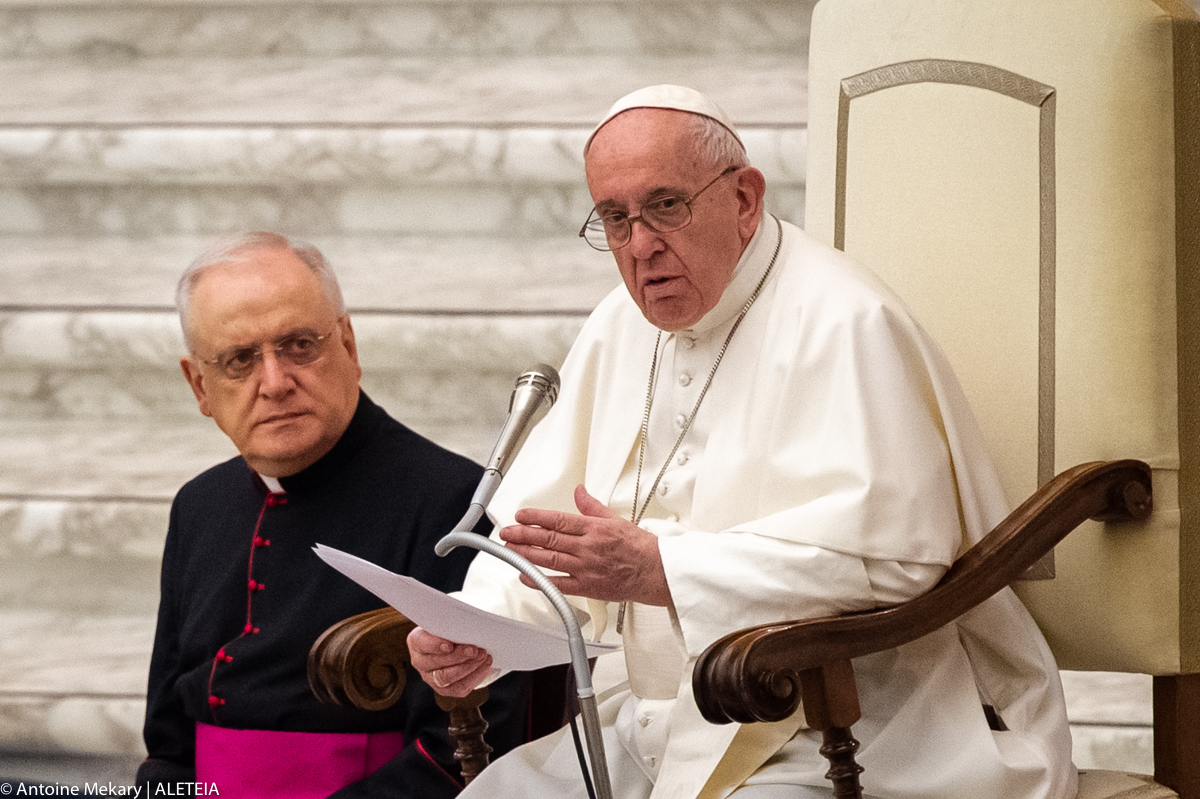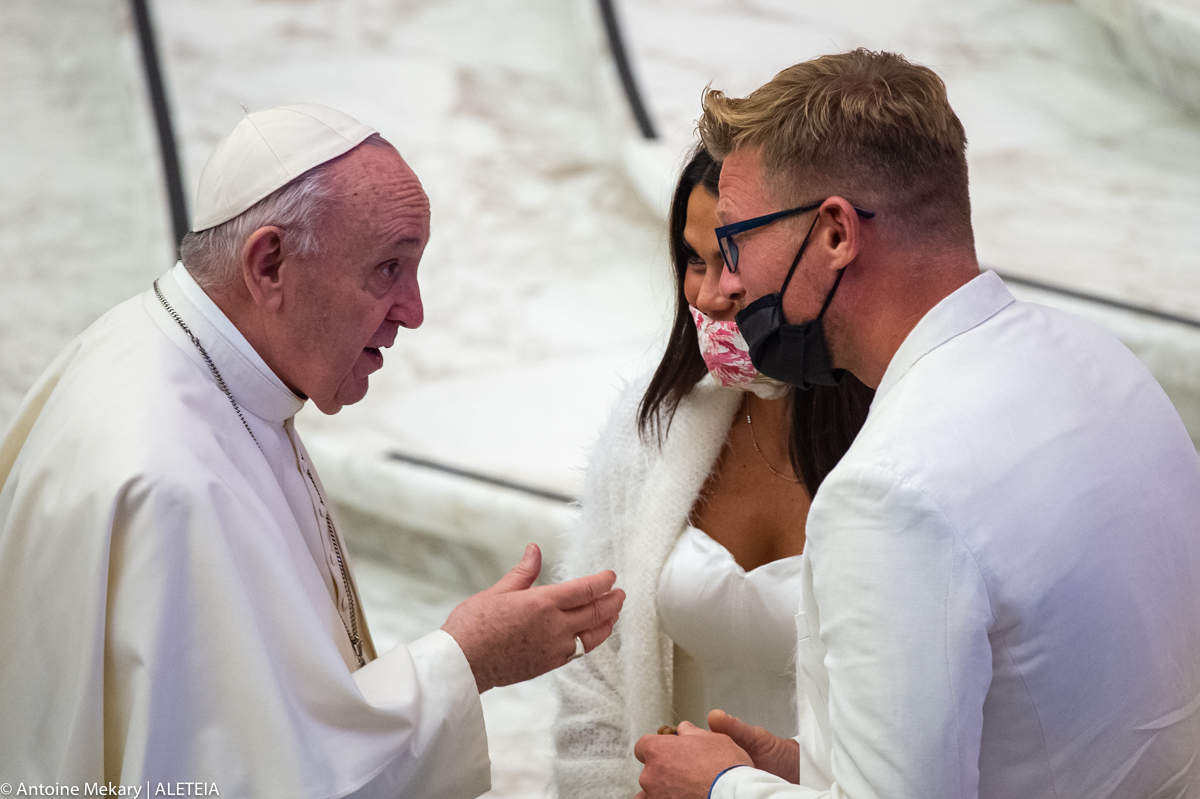Francis warns us against a type of prayer that is mere make-up for the soul.Pope Francis returned to the topic of prayer in his general audience of October 7, saying that after the break to consider the principles of social doctrine, we would go back to consider teachers of prayer. Today, he focused on Elijah, saying that prayer was the “sap” that “constantly nourished” the prophet’s existence.
That’s why he’s one of those most beloved by the monastic tradition, as well as those who have chosen him as a spiritual father in a life consecrated to God. Elijah is the man of God who is raised up as a defender of the primacy of the Most High.
Despite his high vocation, the pope reflected, Elijah finds “he must battle with his own weaknesses.”
“It’s hard to say which experiences were most helpful,” Francis considered, “the defeat of the false prophets on Mount Carmel (cf 1Kings 18:20-40), or the uncertainty in realizing that ‘I am no better than my ancestors.’ (cf 1Kings 19:4).”
In the soul of one who prays, the sense of one’s own weakness is more valuable than the moments of exaltation, when it seems like life is a parade of victories and successes. This is always the way of prayer: Moments of prayer that we feel raise us up, with enthusiasm as well, and moments of prayer in pain, dryness, test. Prayer is like this: Allowing oneself to be led by God, as well as allowing oneself also to be pounded by bad situations and temptations. This is a reality that is found in many other biblical vocations, also in the New Testament. We can think, for example, of St. Peter and St. Paul. Their life was also like this: moments of jubilations and moments of despondency, of suffering.
What is notable in Elijah’s life, the pope continued, is how his prayer led him to action. He is a man “concerned with the events of his age, and capable of assailing the king and queen, after they had Naboth killed in order to take over his vineyard (cf 1Kings 21:1-24).”
How we need believers, zealous Christians, who behave before those in charge with the same valor that Elijah showed, to say: “This must not be done. This is an assassination!” We need the spirit of Elijah.

Not just make-up
The pope said that Elijah shows us how a person of prayer is united in word and deed.
He shows us that there should not be division in the life of one who prays: he is before the Lord and he goes out to encounter the brothers to whom He sends him. Prayer is not shutting oneself up with the Lord in order to put make-up on the soul. No, that’s not prayer. That is pretend prayer.
Prayer is an encounter with God and an allowing oneself to be sent to serve our brothers and sisters. The proof of prayer is in concrete love for our neighbor. And vice versa: Believers go out in the world after first being in silence and having prayed. If not, their actions are impulsive, lacking discernment, a frenetic race without a goal. Believers act like this, and cause many injustices, because they have not gone beforehand to the Lord to pray, to discern what they should do.








